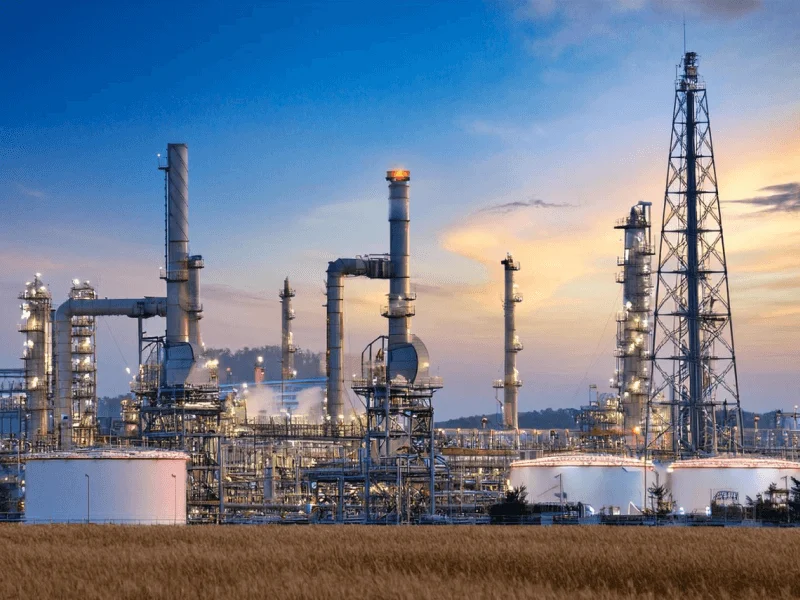As we are on the cusp to 2025, the oil and gas industry stands at a pivotal crossroads. The interplay between global energy demands, climate change imperatives, and rapid technological innovation is reshaping the sector like never before. This is not just evolution—it’s a revolution in how energy powers the world, presenting both challenges and unprecedented opportunities. Whether you’re an investor, a policy-maker, or an industry leader, understanding these shifts is essential to staying ahead in this high-stakes game of change.
Economic Drivers in the Oil and Gas Industry
The oil and gas industry trends remains a cornerstone of global energy supply, even as it faces increasing pressure to evolve. In 2025, economic factors such as fluctuating demand, geopolitical tensions, and investment patterns will shape the industry’s trajectory.
Global Demand: A Balancing Act
Global energy demand is growing steadily, yet fossil fuels are expected to see a peak in consumption before 2030. This shift is largely influenced by:
- Asia-Pacific’s energy needs, driven by industrial expansion and a rising middle class.
- Renewed interest in natural gas as a cleaner alternative, especially in developing countries.
- Government policies favouring carbon-neutral energy solutions.
Capital Investments in Offshore Projects
Investment in offshore drilling remains strong as new technologies make operations more efficient. Key trends include:
- Next-generation drilling platforms offering 20% faster setup and 15% fewer emissions
- A resurgence in exploration, with over $200 billion allocated globally to new offshore projects.
Sustainability in Oil and Gas
Sustainability is now central to the industry’s agenda, as stakeholders push for greener practices and reduced carbon footprints. The future will be defined by the industry’s ability to adapt to renewable energy trends while addressing its environmental challenges.
Renewable Energy Gains Momentum
The renewable energy transition sources is accelerating, with governments and corporations making significant commitments:
- By 2025, 30% of global energy could come from renewables like wind and solar.
- Major oil companies are investing in solar farms and hydrogen energy, diversifying their portfolios.
Challenges in Meeting Environmental Goals
Despite progress, achieving sustainability remains a challenge:
- Methane leaks, responsible for 25% of industry greenhouse gas emissions, are a critical issue.
- Offshore drilling risks, such as potential oil spills, threaten marine ecosystems and public trust.
Technological Advancements Reshaping the Industry
The integration of technology is transforming the oil and gas sector, driving efficiency and innovation. Companies that embrace digital transformation will gain a competitive edge in the rapidly evolving market.
The Power of Digital Transformation
Digital tools are redefining how oil and gas companies operate:
- AI-powered maintenance reduces equipment downtime by up to 30%, saving costs.
- IoT-enabled rigs provide real-time monitoring, optimizing resource allocation and safety.
Harnessing Data for Smarter Decisions
Data analytics helps companies anticipate trends and improve decision-making:
- Predictive analytics models save millions annually by identifying supply chain inefficiencies.
- Cloud platforms enable seamless collaboration, boosting global team productivity.
Extended Reality: The New Frontier
AR and VR technologies are revolutionizing training and operations:
- VR simulations reduce workplace accidents by 40%, enhancing safety protocols.
- AR tools detect equipment faults instantly, minimizing downtime and repair costs.
Economic and Market Outlook Beyond 2025
As the industry progresses, its long-term outlook reveals new opportunities and challenges. Emerging markets, technological innovations, and renewable integration will all play crucial roles.
Projected Market Growth
The oil and gas sector is poised for growth in several key areas:
- The global oilfield services market is expected to surpass $270 billion by 2030.
- LNG exports are projected to grow by 15% annually, catering to increased demand in Europe and Asia.
The Role of Emerging Markets
Emerging markets will significantly influence the industry’s future:
- Countries like India and Brazil are ramping up their oil imports, with volumes increasing by over 20% annually.
- Investments in local infrastructure, such as pipelines and refineries, will drive regional development.
Acuvate's Role in Facilitating Industry Transformation
Acuvate offers innovative solutions tailored for the oil & gas energy sector, focusing on enhancing safety, efficiency, and sustainability. Their data-driven approaches and AI-powered tools assist companies in navigating the complexities of digital transformation, ensuring they remain competitive in the evolving energy landscape.
The Road Ahead for Oil and Gas
The oil and gas industry of 2025 faces a pivotal moment. Economic imperatives, environmental accountability, and technological innovation will shape its evolution. As the transition to renewables accelerates, the sector must adapt by integrating sustainable practices and digital tools. While challenges persist, the industry’s adaptability and resilience position it to remain a critical player in the global energy landscape.
Ready to transform your oil and gas operations? Partner with Acuvate to unlock innovative solutions that drive sustainability, efficiency, and growth. Contact Us Today!



